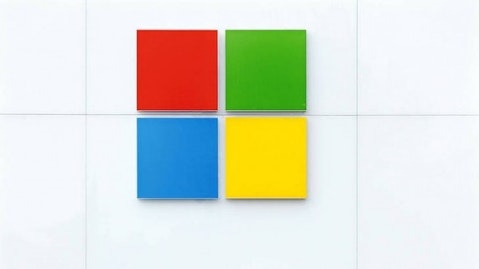Most investors know the story of Microsoft Corporation (NASDAQ:MSFT) by now: if you believe the naysayers, the company’s best days are behind it. The stock is only just now making a meaningful move upward after spending an entire decade languishing.
Add in the fact that most financial pundits have declared the Personal Computer to be dead, and it should be abundantly obvious that Microsoft Corporation (NASDAQ:MSFT) should be sold. But is the story behind the world’s software king really that simple? Or are there more positive catalysts than the company’s detractors are willing to admit?
A cool decade, and a scorching 2013
After famously spending years providing little in terms of share price appreciation, Microsoft shares have finally begun to break out. The stock is up 31% just this year, not even including dividends, at its recent price of $35 per share.
There are a few catalysts likely behind this move, including the company’s steady underlying results as well as the upcoming release of the Xbox One gaming console.
I’ve written critically of the latter idea. I think optimism surrounding Microsoft Corporation (NASDAQ:MSFT) is misguided if it is centered on the new console. That’s because the truth is that the Xbox simply doesn’t matter that much for Microsoft.
Microsoft’s Entertainment and Devices Division, where the Xbox operates, made up just 13% of total revenue last year. And when the previous Xbox console was released, the Xbox 360, the division still made up just 11% of the company’s revenue.
If you’re buying Microsoft Corporation (NASDAQ:MSFT), you’re doing so because of Office, Windows, and the company’s Servers businesses, which make up the vast majority of its operations.
Better reasons for optimism
I think better reasons for investing in Microsoft are due to its attractive valuation and healthy dividend yield coming in to 2013.
Even after the rally, Microsoft still trades for just 13 times its 2012 earnings if you strip out the goodwill impairment charge that dragged down last year’s EPS.
The company is off to a decent start to the current fiscal year, reporting 4% revenue growth through the first nine months, year over year.
In addition, Microsoft Corporation (NASDAQ:MSFT) has a fortress balance sheet. The company is one of only four to hold a triple-A credit rating from Standard and Poor’s. At the end of its most recent quarter, Microsoft held nearly $75 billion in cash, equivalents, and short-term investments.
And let’s not forget that compelling dividend, which even after the stock run-up, yields 2.6%, still 45 basis points greater than the 10-year Treasury Bond.
On valuation and dividends, Microsoft has some competition, even from other large-cap technology stocks. Fellow Dow 30 components Intel Corporation (NASDAQ:INTC) and Cisco Systems, Inc. (NASDAQ:CSCO) also trade for attractive valuations and offer strong dividend yields.
Intel Corporation (NASDAQ:INTC) has had a rough past few quarters, serving to fuel the fire that the PC is in dire shape. However, despite disappointing full-year results, in which fiscal 2012 revenue and earnings per share dropped 1.2% and 11%, respectively, Intel Corporation (NASDAQ:INTC) trades for just 13 times earnings and yields 3.6% at recent prices.
Cisco Systems, Inc. (NASDAQ:CSCO)’s third-quarter net sales increased 5% year over year and GAAP earnings per share increased an impressive 15% versus the same period in 2012. The company is firing on all cylinders right now, and after boosting its shareholder payout by 75% late last year, provides investors a 2.7% dividend yield.
The Foolish bottom line
Microsoft Corporation (NASDAQ:MSFT) brings up strong opinions from those who are either bullish or bearish on shares of the world’s software king. There are certainly reasonable arguments on both sides: bulls point to the company’s compelling valuation and strong dividend, while bears pound the table that the personal computer is dead, and so is Microsoft.
While I don’t believe the company should be considered a high-growth stock anymore, investors could certainly do worse than a highly profitable, high-dividend stock with a fortress balance sheet. To that end, going forward I see Microsoft returns likely to resemble the returns previously associated with traditional dividend plays like consumer staples stocks.
Microsoft Corporation (NASDAQ:MSFT)’s earnings growth isn’t likely to set your hair on fire. At the same time, share owners will continue to receive a competitive dividend with double-digit dividend increases every year, along with the margin of safety of a well-capitalized balance sheet. Microsoft isn’t expensive, but I’d like to see a bit of a pullback after such a strong rally to begin the year. If Microsoft falls under $30 per share, it would be very hard to resist.
Robert Ciura owns shares of Intel. The Motley Fool recommends Cisco Systems, Inc. (NASDAQ:CSCO) and Intel. The Motley Fool owns shares of Intel Corporation (NASDAQ:INTC) and Microsoft Corporation (NASDAQ:MSFT).
The article Should You Buy Microsoft? originally appeared on Fool.com.
Robert is a member of The Motley Fool Blog Network — entries represent the personal opinion of the blogger and are not formally edited.
Copyright © 1995 – 2013 The Motley Fool, LLC. All rights reserved. The Motley Fool has a disclosure policy.






